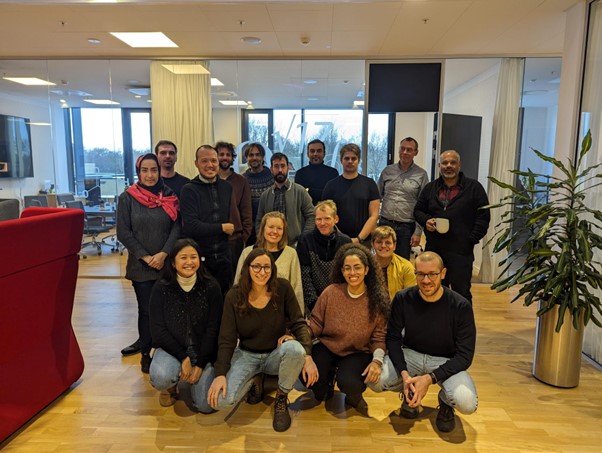Multi-omics Network Analytics
We develop open-source resources and tools and use machine learning to help scientists understand complex biological data, focusing on sustainability and human health. By analyzing networks between different biological entities such as for instance microbial interactions, we help scientists understand complex processes, generate new ideas, design better experiments, and make accurate predictions.
What we try to achieve
Creating open source tools and resources, and applying machine learning methods to help researchers analyze and interpret multi-omics data across disciplines is at the core of our mission. For instance, we work on standardizing and integrating metaomics data available in public repositories, building Microbial Association Networks (MANs) and combining them with knowledge extracted from biological databases. These integrative graphs play a crucial role in hypothesis generation, experiment design, and making high-quality downstream predictions, all through a holistic multi-omics perspective.
Additionally, our group is dedicated to developing innovative methods to enhance the identification and quantification in mass spectrometry-based metaproteomics studies. By refining these techniques, we aim to improve data interpretation and expand what can be achieved in metaproteomics, contibuting to better understanding the functional role of microbial communities.
What our research is important and how it can be used
We provide the research community with open source tools and robust resources such as databases that can be used to drive scientific discoveries.
For instance, our work predicting and integrating microbial association networks (MANs) in different environments and contexts can have significant potential across various fields due to their ability to elucidate relationships and interactions between microbial species. MANs help in understanding the complex interactions within microbial communities and their roles in ecosystem functioning. This can lead to insights into nutrient cycling, energy flow, and the maintenance of ecosystem health. Further, these networks in a human microbiome context can lead to the development of probiotics and other microbiome-based therapies.
How we achieve our aims - methods, tools, technologies
Open Source Tools, we develop tools to facilitate multi-omics data analysis, ensuring accessibility and collaboration across the scientific community.
Data standardization and integration (databases), we ensure that multi-omics data from various sources are harmonized and stored in a consistent manner, making them accessible for analysis and comparison.
Mass Spectrometry-Based Metaproteomics, we focus on improving identification and quantification techniques in mass spectrometry-based metaproteomics. This involves developing new algorithms and methods to enhance the accuracy and precision of protein analysis, crucial for reliable biological insights.
Knowledge graphs, we use these data structures to model relationships between biological entities (e.g., species, functions, etc.), enabling the integration and querying of heterogeneous data sources. In multi-omics, they help connect various types of omics data together with contextual information.
Graph analytics and machine learning, we exploit the graph structures to find patterns, clusters, and relevant nodes in omics data that help interpret the data and answer relevant biological questions.
Contact
Alberto Santos Delgado Director, Informatics Platform albsad@biosustain.dtu.dk
